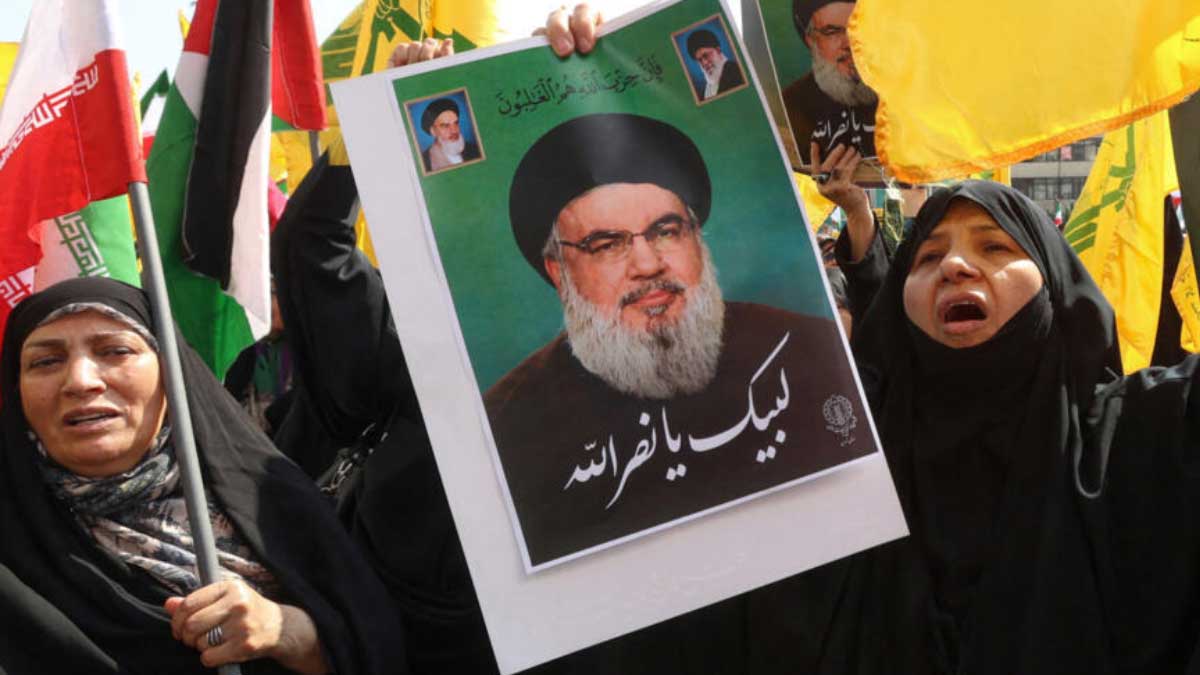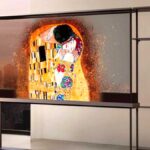- Home
- Billionaires
- Investing Newsletters
- 193CC 1000
- Article Layout 2
- Article Layout 3
- Article Layout 4
- Article Layout 5
- Article Layout 6
- Article Layout 7
- Article Layout 8
- Article Layout 9
- Article Layout 10
- Article Layout 11
- Article Layout 12
- Article Layout 13
- Article Layout 14
- Article Sidebar
- Post Format
- pages
- Archive Layouts
- Post Gallery
- Post Video Background
- Post Review
- Sponsored Post
- Leadership
- Business
- Money
- Small Business
- Innovation
- Shop
Recent Posts
Hezbollah Leader Nasrallah Killed in Israeli Airstrike

Hezbollah has confirmed that its longtime leader, Hassan Nasrallah, was killed in an Israeli airstrike targeting the group’s central headquarters in southern Beirut. This marks a significant milestone for Israel, but also represents a serious escalation in the conflict between the two parties. The strike, carried out by the Israel Defense Forces (IDF), was part of an extensive aerial bombardment, marking a notable achievement in Israel’s long-standing effort to dismantle Hezbollah’s leadership. However, Nasrallah’s death could also fuel further violence, as retaliation is expected from Hezbollah or its allies in the coming days.
Hassan Nasrallah was killed during an Israeli airstrike on Hezbollah’s headquarters in southern Beirut, which the IDF described as the group’s “central headquarters.” According to The Washington Post, this strike, which employed more than 80 bombs, was meticulously planned by Israeli forces over several months as they tracked Nasrallah’s movements. Alongside Nasrallah’s body, the remains of another senior Hezbollah commander, Ali Karaki, were also discovered, adding to the significance of the operation.
Israel had been carefully following Nasrallah’s location, with the goal of eliminating the Hezbollah leader who had been at the helm of the militant group for over three decades. The New York Times reported that the IDF had kept Nasrallah’s whereabouts under constant surveillance for months leading up to the strike, which finally culminated in the large-scale operation that took place in southern Beirut.
Nasrallah’s cousin, Hashem Safieddine, has been widely discussed as a potential successor to lead Hezbollah. Although Safieddine was not present at the time of the attack, his proximity to Nasrallah in terms of both familial ties and organizational influence makes him a likely candidate to assume leadership of the group. Israeli defense officials, as cited by The New York Times, believe that Safieddine could soon be announced as Hezbollah’s new secretary general. Safieddine has already played a significant role within the group, and his ascension would be a crucial development as Hezbollah moves forward without Nasrallah’s leadership.
Following Nasrallah’s death, Israeli authorities are bracing for retaliatory strikes from Hezbollah. The IDF has already issued warnings of potential attacks and has taken proactive measures to mitigate any potential fallout. Daniel Hagari, an IDF spokesperson, confirmed that Israel has prohibited gatherings of more than 1,000 people in certain parts of the country until Monday evening as a precautionary measure. This move is seen as a necessary step to prevent large-scale casualties in the event of an attack from Hezbollah or its allies.
In a statement following the strike, the IDF said, “Nasrallah will no longer be able to terrorize the world.” The operation is viewed as a major victory for Israel in its ongoing efforts to weaken Hezbollah, which has been a significant force in the region for decades.
Hassan Nasrallah, 64, served as Hezbollah’s secretary general for 32 years, leading the group through some of its most turbulent and impactful moments. Under his leadership, Hezbollah grew from a relatively small militia to a powerful political and military force in Lebanon and the broader Middle East. Nasrallah was known for his fiery rhetoric and staunch opposition to Israel, often referring to the country as “the Zionist entity” and calling for the liberation of Jerusalem.
Throughout his leadership, Nasrallah carefully avoided public appearances due to the threat of assassination by Israeli forces. Despite this, he was an influential figure within Hezbollah and the broader Shia community in Lebanon, maintaining tight control over the organization’s operations and ideology. His support for Hamas during its attacks on Israel last October further solidified his stance as one of Israel’s most prominent enemies. Nasrallah had pledged Hezbollah’s continued attacks on Israel’s northern border until a ceasefire was reached in Gaza, underscoring his role in shaping the group’s militant activities.
The conflict between Israel and Hezbollah has significantly escalated over the past two weeks, with both sides engaging in frequent and deadly exchanges. According to the Associated Press, more than 600 people have been killed in Lebanon, while over 2,000 have been injured in the fighting. Israeli airstrikes have primarily targeted southern Lebanon and Beirut, while Hezbollah has launched its own attacks into northern Israel, including an attempt to strike Mossad’s headquarters with a ballistic missile. Although the missile was intercepted, the attack demonstrated Hezbollah’s growing military capabilities and willingness to target key Israeli institutions.
The conflict shows no signs of de-escalation, with Israel even considering a ground invasion of Lebanon. Such a move would represent a significant escalation in the conflict, raising the risk of a broader war in the region. A ground invasion would mark a new phase in the hostilities, likely leading to even higher casualties and a more entrenched military confrontation. The situation is further complicated by the presence of roughly 40,000 U.S. troops stationed in the Middle East, adding another layer of geopolitical tension to the already volatile situation.
Nasrallah’s death is a pivotal moment in the Israel-Hezbollah conflict, but it is unlikely to bring an end to the hostilities. Instead, it could serve as “Hezbollah Leader Nasrallah Killed in Israeli Airstrike”
a catalyst for further violence, as Hezbollah and its allies seek to retaliate against Israel. The loss of its longtime leader will certainly affect Hezbollah’s operations, but the group has shown resilience in the past and is likely to continue its attacks in the wake of Nasrallah’s death.
With the appointment of a new leader, likely Hashem Safieddine, Hezbollah could enter a new phase in its struggle against Israel. The coming days and weeks will be critical in determining how the group responds to the death of its leader and what direction it will take moving forward. Meanwhile, Israel remains on high alert, preparing for the possibility of more intense fighting as the conflict with Hezbollah continues to evolve.
Recent Posts
Categories
- 193cc Digital Assets2
- 5G1
- Aerospace & Defense46
- AI37
- Arts3
- Banking & Insurance11
- Big Data3
- Billionaires426
- Boats & Planes1
- Business328
- Careers13
- Cars & Bikes76
- CEO Network1
- CFO Network17
- CHRO Network1
- CIO Network1
- Cloud10
- CMO Network18
- Commercial Real Estate7
- Consultant1
- Consumer Tech180
- CxO1
- Cybersecurity68
- Dining1
- Diversity, Equity & Inclusion4
- Education7
- Energy8
- Enterprise Tech29
- Events11
- Fintech1
- Food & Drink2
- Franchises1
- Freelance1
- Future Of Work2
- Games141
- GIG1
- Healthcare78
- Hollywood & Entertainment186
- Houses1
- Innovation42
- Investing2
- Investing Newsletters4
- Leadership65
- Lifestyle11
- Manufacturing1
- Markets20
- Media193
- Mobile phone1
- Money13
- Personal Finance2
- Policy567
- Real Estate1
- Research6
- Retail1
- Retirement1
- Small Business1
- SportsMoney33
- Style & Beauty1
- Success Income1
- Taxes2
- Travel10
- Uncategorized8
- Vices1
- Watches & Jewelry2
- world's billionaires395
Related Articles
Farkhad Akhmedov: A Life in Business, Wealth, and Controversy
Farkhad Akhmedov, a Russian-born businessman with a story that spans from trading...
By 193cc World's BillionairesDecember 2, 2024Rob Walton & Family: A Legacy of Business Leadership and Sports Ownership
Rob Walton, the eldest son of Walmart founder Sam Walton, has been...
By 193cc World's BillionairesNovember 28, 2024Tottenham Overcomes City with Kulusevski’s Magic
In a thrilling display of skill and determination, Dejan Kulusevski emerged as...
By 193cc Agency CouncilNovember 1, 2024Modern Warfare III’ Joins Xbox Game Pass Amid Price Increase
“Call of Duty: Modern Warfare III,” the newest addition to the acclaimed...
By 193cc Agency CouncilJuly 24, 2024















Leave a comment